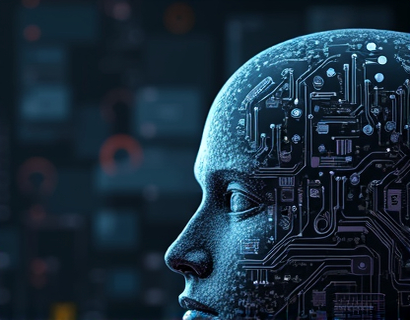Transforming Access to Social Services Information: The Power of AI-Driven Chat Interfaces
The landscape of accessing information on social services is undergoing a significant transformation with the advent of AI-powered chat interfaces. These innovative platforms are designed to provide users with verified, specialized content, ensuring a safe and educational experience for all demographics, including adults, students, and young learners. The integration of artificial intelligence in chat interfaces not only simplifies navigation to essential resources but also empowers users with the knowledge to make informed decisions and engage more deeply with social services.
Understanding the Need for Specialized Information
Social services encompass a broad range of support systems designed to assist individuals and families in various aspects of life, from healthcare and education to housing and employment. The complexity and specificity of these services necessitate a reliable and accessible source of information. Traditional methods of seeking this information, such as browsing through extensive websites or contacting organizations directly, can be overwhelming and time-consuming. An AI-driven chat interface addresses these challenges by offering a streamlined, intuitive way to access accurate and relevant data.
Key Features of AI-Powered Chat Interfaces
One of the most significant advantages of AI-powered chat interfaces is their ability to provide content that is both verified and tailored to the user's needs. These platforms use advanced algorithms to understand user queries and deliver responses that are not only accurate but also contextually relevant. For instance, a user seeking information on child welfare services will receive detailed, age-appropriate content that is suitable for their level of understanding.
Moreover, these chat interfaces are designed to be child-friendly, ensuring that young users and students can access information safely. Content verification mechanisms are in place to filter out any inappropriate or misleading information, making the platform a trusted resource for educational purposes. This feature is particularly crucial in an era where misinformation can spread rapidly online.
Enhancing User Experience through Personalization
AI-powered chat interfaces leverage machine learning to personalize the user experience. By analyzing user interactions and preferences, the chat can adapt its responses to better meet individual needs. For example, a student researching college financial aid options will receive a tailored set of resources, including scholarships, grants, and loan information, along with step-by-step guidance on the application process. This level of personalization not only enhances user satisfaction but also increases the likelihood of users taking action based on the information provided.
Fostering Informed Decision-Making
Informed decision-making is at the core of the services offered by AI-powered chat interfaces. By providing comprehensive and accurate information, these platforms enable users to understand their options fully and make choices that align with their goals and circumstances. For adults seeking employment assistance, the chat can offer detailed insights into job market trends, required skills, and available training programs. This empowers individuals to take proactive steps towards improving their employment prospects.
For families in need of housing support, the chat can provide information on local housing programs, eligibility criteria, and application processes. Users can ask follow-up questions and receive immediate, relevant responses, reducing the stress and uncertainty often associated with navigating complex social service systems.
Ensuring Safety and Trust
Safety and trust are paramount in any platform that deals with sensitive information and vulnerable users. AI-powered chat interfaces implement robust security measures to protect user data and ensure privacy. Additionally, the content provided is rigorously vetted to maintain high standards of accuracy and reliability. This commitment to safety and trustworthiness makes these platforms invaluable resources for individuals seeking assistance with social services.
For young users, the chat interface includes parental controls and monitoring features, allowing guardians to oversee and guide their children's interactions with the platform. This adds an extra layer of security, ensuring that children can explore and learn without exposure to inappropriate content.
Educational Value for All Users
The educational value of AI-powered chat interfaces extends beyond just providing information. These platforms serve as interactive learning tools that can help users gain a deeper understanding of social services and the systems that support them. For students, the chat can offer educational modules and resources that align with school curricula, making it a valuable supplement to classroom learning.
For adults and professionals, the chat can provide continuing education opportunities, keeping users informed about the latest developments and best practices in the social services field. This continuous learning approach not only enhances individual knowledge but also contributes to a more informed and capable community.
Accessibility and Inclusivity
Accessibility is a key consideration in the design of AI-powered chat interfaces. These platforms are built to be user-friendly, with intuitive navigation and clear, concise language. For users with disabilities, features such as text-to-speech and screen reader compatibility ensure that everyone can access the information they need. This inclusivity is essential in creating a fair and equitable system where all individuals, regardless of their abilities, can benefit from the resources available.
Moreover, the chat interfaces are available in multiple languages, making them accessible to a diverse user base. This multilingual support is particularly important in communities with significant non-native speaker populations, ensuring that language barriers do not hinder access to essential information.
Case Studies and Success Stories
Several organizations have successfully implemented AI-powered chat interfaces to enhance their social service offerings. One notable example is a community health center that integrated a chatbot to assist patients in navigating healthcare services. The chatbot provided users with step-by-step guidance on scheduling appointments, understanding insurance coverage, and accessing support services. As a result, patient satisfaction increased, and the center saw a reduction in no-show rates for appointments.
Another success story comes from an educational institution that used an AI chat to help students with college planning. The chat offered personalized advice on course selection, financial aid, and career counseling. Students reported feeling more confident and better prepared for their academic and professional futures, highlighting the positive impact of such tools on educational outcomes.
Challenges and Future Directions
While AI-powered chat interfaces offer numerous benefits, there are challenges to consider. One major challenge is ensuring the accuracy and relevance of the information provided. Continuous updates and improvements to the AI algorithms are necessary to keep the content current and accurate. Additionally, there is a need for ongoing user feedback to refine the chat's responses and address any gaps in the information offered.
Looking ahead, the integration of more advanced AI technologies, such as natural language processing and emotional intelligence, can further enhance the user experience. These advancements will enable chat interfaces to understand and respond to user emotions, providing more empathetic and supportive interactions. Furthermore, the expansion of multilingual and cross-cultural capabilities will make these platforms even more accessible and inclusive.
Conclusion
AI-powered chat interfaces represent a significant leap forward in providing access to specialized social services information. By offering verified, personalized content in a safe and educational environment, these platforms empower individuals to make informed decisions and engage more effectively with essential resources. As technology continues to evolve, the potential for these chat interfaces to transform the way we access and interact with social services is immense. Embracing this innovation can lead to more efficient, effective, and equitable social service systems for all.











































